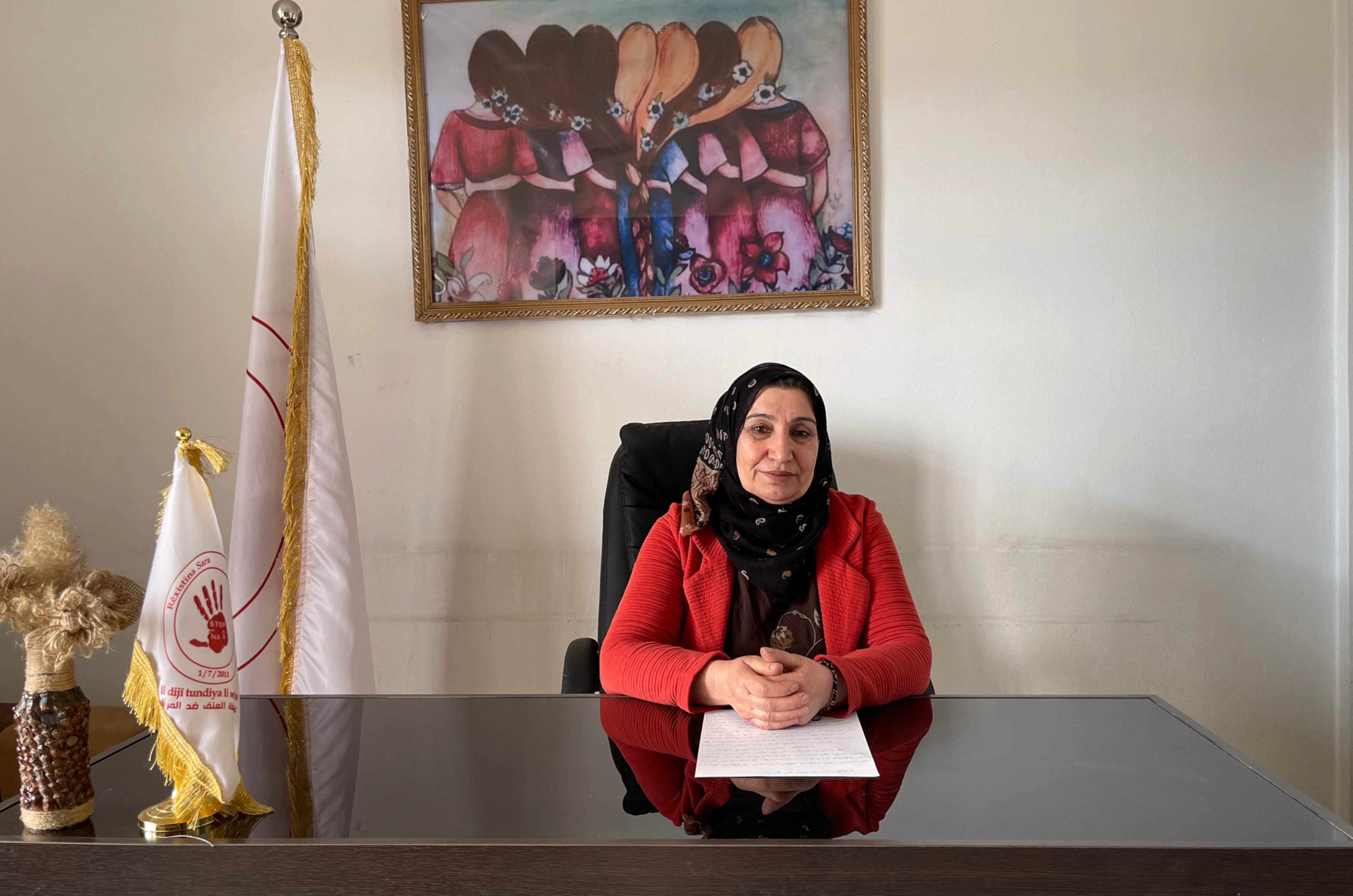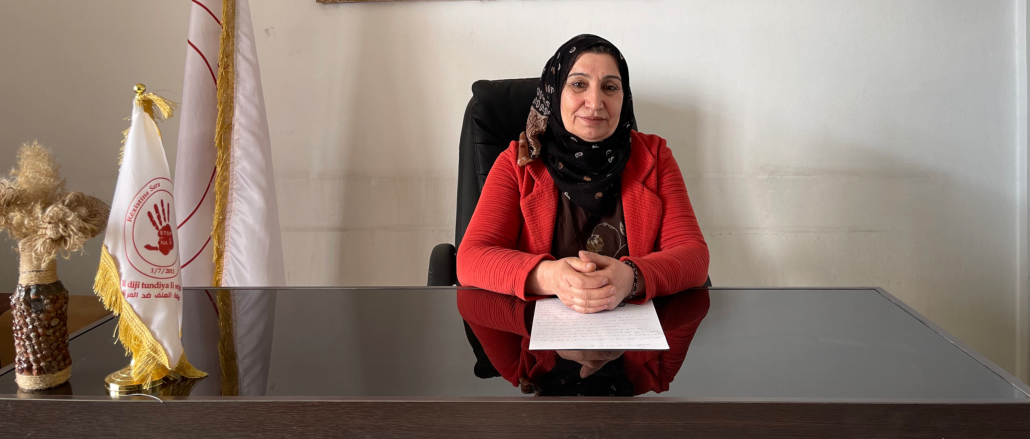Today is the International Day for the Elimination of Violence Against Women. RIC interviewed Arzo Tammo, the coordinator of Sara’s Qamishlo center. Sara is an organization specifically created to address violence against women, such as combating kidnapping and underage marriage.

“We need to challenge the prevailing traditions and cultural norms that perpetuate violence against women and make it seem inevitable. We assert that violence will never be women’s fate. It needs to be opposed and eradicated.”
Violence against women and girls remains one of the most prevalent and pervasive human rights violations in the world, according to the UN. Globally, almost one in three women have been subjected to physical and/or sexual intimate partner violence, non-partner sexual violence, or both, at least once in their life.
Sara was formed in 2013, its initial membership being mostly composed of teachers in the public school system. They chose the name “Sara” because it was a common woman’s name among the Christian, Arab, and Kurdish communities living in the region. Choosing a commonly-used name also served the purpose of concealing their operations, which could be met with societal backlash. In choosing the logo, Tammo explains, “We observed that a significant number of women who sought our assistance had visible signs of physical abuse inflicted by their husbands. We chose to utilize the hand gesture representing ‘STOP,’ in red to symbolize blood, because it was employed by numerous other organizations advocating for women’s rights and standing in solidarity with them against violence.”
Tammo tells RIC that Sara started as a volunteer organization, and most of its members are still working on a volunteer basis. Their first center was opened in Qamishlo, followed by centers in Kobane in 2016 and in Afrin in 2015 – prior to Turkey’s occupation of the region. Sara has since expanded its reach, including campaigns in IDP camps across NES.
Sara’s Role in the Justice System of NES
When the DAANES passed the Women’s Law in 2014, Sara was gratified. The Women’s Law entails principles such as prohibiting so-called honor killings, preventing polygamy, and prohibiting violence against women in general. The Family Law is the current iteration of the DAANES’ legislative enshrinement of women’s rights. Tammo explains that an article from this law that is most helpful to Sara is the one that permits a representative of women’s organizations to be present at court cases dealing with violence against women.
Sara accompanies women in court to ensure that their case will be heard in adherence to the Family Law. They sometimes act as defense attorneys for women who cannot afford one. “We assert that our objective is to advocate for the victim and uphold the principles of justice,” says Tammo. Even if a woman already has an attorney, Sara representatives can still be present at the court case to make sure justice will be doled out properly. Tammo explains that in many instances, the two families involved in a dispute will reach a reconciliation after making a financial payment to the family of the victim. In return, the aggrieved family will drop their lawsuit and accept the justification of the killing as a matter of honor. “However, in such cases, we refuse to accept this justification,” Tammo says, “maintaining that it is imperative to reject the notion of ‘honor’ as a defense for murdering women.”
After the Women’s Law was passed, Sara went on a campaign to spread knowledge of it, knowing it could be difficult for the society to grasp. They disseminated information about the legislation through lectures, meetings, and discussions. One of the campaigns they launched was titled “women are life, do not kill life.”
Difficulties and Reception
When the Women’s Law was originally implemented, there was a public reading of the law in a city square. When members of Sara attended, they heard complaints from men in the crowd. There were many doubts about how the law would be carried out.” I said: if they do not even want to listen to this, how can we implement it?” Tammo shares, “but we decided to struggle, trusting that time will bring results. We need to challenge the prevailing traditions and cultural norms that perpetuate violence against women and make it seem inevitable. We assert that violence will never be women’s fate. It needs to be opposed and eradicated.”
The work is not easy and the situations of women who come to Sara can be quite heavy. Tammo shares having experienced insomnia from some of the cases she’s heard about women being killed by their husbands. “I do not understand why someone has to die, even if there is evidence of cheating. Why can’t the two parties simply break up and leave each other? Why does anyone’s life have to be taken?” She says, “Men under no circumstances have the right to kill their wives. It is wrong and unfair, also for the children who are left without a parent.”
Sara’s work is not without opposition. Tammo shares that sometimes they get harassed by men:
“Some men have been angry with our work, perceiving us as working against their traditions, culture or tribal legal system which allows them to kill in the name of ‘honor’ with impunity. Therefore, we are sometimes worried. But these threats do not break our will. Despite the difficulties, challenges, and fears, we are taking this work on our shoulders. We take the risk for the sake of women and their freedom.”November 25, 2024

